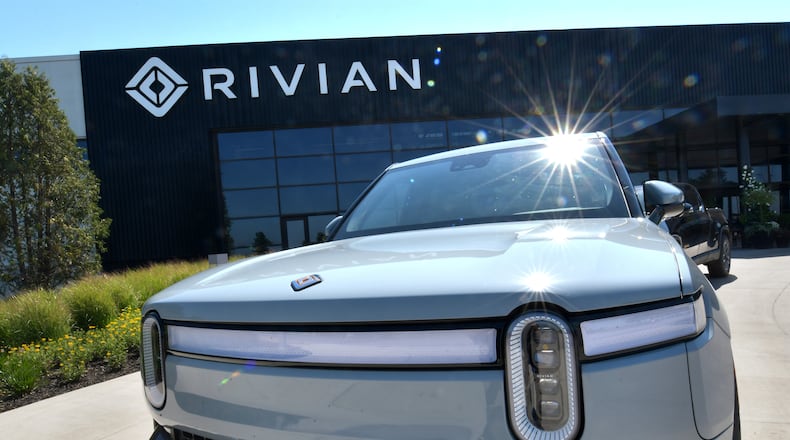Rivian may be getting lots of tax incentives from state and local leaders in Georgia to build a massive new factory, but the company’s leaders are feeling snubbed by Congress.
The U.S. Senate recently reached an agreement to reform federal electric vehicle tax credits, expanding the program overall while placing new caps on vehicle price. But the high price point of Rivian’s vehicles leaves them on the outside and at a competitive disadvantage, vice president of public policy James Chen confirmed this week to media outlets, including The Atlanta Journal-Constitution.
“Nearly all of our vehicles would be ineligible for incentives,” Chen told Automotive News, a Detroit-based newspaper.
The pending legislation, which is included in a high-profile climate change bill, would provide a $7,500 per vehicle tax credit to pickups, SUVs and vans priced less than $80,000. The ceiling is $55,000 for other vehicles.
In addition, an individual buyer’s annual income is capped at $150,000 to qualify. Currently, the credit is available for the first 200,000 vehicles produced by one manufacturer, regardless of the sales price, but the new bill would remove the restriction on total vehicles.
Chen said this change would disproportionately hurt Rivian, because its R1T pickup trucks and R1S SUVs would no longer qualify. The California-based automaker doesn’t plan to offer vehicles for less than $80,000 until 2025, once its 16-million-square-foot factory in Georgia is built and operating.
Rivian has said it will build a new crossover in Georgia called the R2 that it will sell at a lower price. All of Rivian’s vehicles are currently manufactured in Normal, Ill., and the company’s goal for this year is to deliver 25,000 vehicles.
“While we applaud the focus of the Inflation Reduction Act, as currently drafted this legislation will pull the rug out from consumers considering purchase of an American made electric vehicle,” Chen told the AJC in a written statement. “The final package must extend the transition period to provide consumer choice and protect good-paying manufacturing jobs here at home.”
Congress could deliver the latest blow to Rivian in what’s proven to be a challenging year for the EV upstart. The company recently announced it is laying off 6% of its nonmanufacturing workers, and supply chain issues have stunted the Illinois plant’s production quotas. In addition, Rivian has received vocal pushback from residents near the Georgia project site, sparking legal battles over a hefty portion of the $1.5-billion incentive package the state offered the company.
A note of disclosure
Cox Enterprises, owner of the AJC, owns about a 4% stake in Rivian and supplies services to it. Sandy Schwartz, a Cox executive who oversees the AJC, is on Rivian’s board of directors and holds stock personally. He does not take part in the AJC’s coverage of Rivian.
About the Author
Keep Reading
The Latest
Featured




